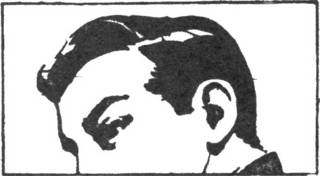In a land where rainfall is scarce, the act of reading the skies and attempting to name the unattainable becomes unbearably poignant. Arati-Kumar Rao on
the language of the Thar:
The act of naming — chhinto for a drizzle of rain or ghuTyo for the asphyxiating stillness of un-raining clouds — is a way of paying homage, recognizing worth, according importance of these events that are vital to their survival.
These ambling geographers, these mojri-and-saafa clad ecologists, read the land and know how to “divine” water. They can tell ubreLyo (spent clouds) from dhundh (clouds heavier than the light cottony paans); follow the baaval (petrichor) towards as yet unseen kaLaan (heavy rain clouds); recognize over eighty different desert species of plants from aak to zillon, and know the behaviors of sandgrouse and spiny-tailed lizard, chinkara and bustard.
It is a lived, intensely local knowledge. They find words for what they see and experience, they pass on these words, and individual knowledge grows into collective knowledge. They are the archivists of the desert.
Elsewhere, Rao presents a
landscape glossary that compiles all the words of the Thar that are being lost: evocative dialect names for clouds like cotton blankets and clouds patterned like partridge wings.
kanThi: cumulus clouds on the horizon
oomb: low white blanket of clouds, early in the morning
paNi-haari: clouds that resemble women carrying water pots on their heads
teetar pankhi: cirro cumulus clouds, resembling the pattern on a partridge’s wings
paans: consolidated teetar pankhi clouds forming a light uneven blanket
seekote: light winter clouds on the horizon, resembling dunes
ubrelyuo: passing clouds, probably spent
chhoyo: clouds that are just beginning to rain
miLuvDa: cool gathered clouds alternating light & shade
chhanvLiya: diffused light from clouds
ghor: dense thunder clouds rumbling in fury
dhaarolyou: a small veil of rain bridging cloud and earth
lukho: a lone tuft of cloud
parlaavon: clouds reflecting far away lightning.

1 comment:
Marvelous. I love these specialized local vocabularies.
Post a Comment